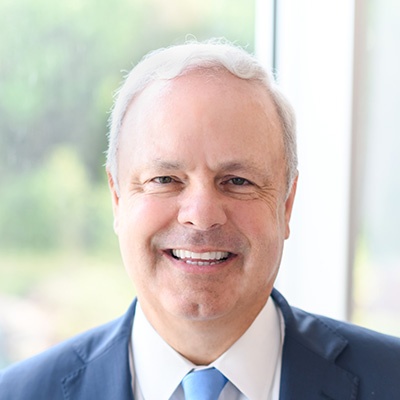















Howard “Skip” Burris III was elected president of the American Society of Clinical Oncology for the term beginning in June 2019.
Burris is president of clinical operations and chief medical officer for Sarah Cannon, the cancer institute of HCA Healthcare. He is an associate of Tennessee Oncology, PLLC.
Burris completed his undergraduate education at the United States Military Academy at West Point, his medical degree at the University of South Alabama, and his internal medicine residency and oncology fellowship at Brooke Army Medical Center in San Antonio.
The following physicians will begin four-year terms as members of ASCO’s Board of Directors starting in June 2018:
Laurie Gaspar, treasurer. Gaspar is professor emeritus in the Department of Radiation Oncology at the University of Colorado.
Tracey Weisberg was elected to a Community Oncologist seat. Weisberg is the lead physician of New England Cancer Specialists, and oversees medical house staff at the Maine Medical Center Oncology inpatient unit.
Tony Mok was elected to an International Oncologist seat. Mok is the Li Shu Fan Medical Foundation Named Professor of Clinical Oncology and chair of clinical oncology at The Chinese University of Hong Kong. He co-founded the Lung Cancer Research Group.
A. William Blackstock was elected to a Radiation Oncologist seat. Blackstock is professor and chair of the Department of Radiation Oncology at the Wake Forest University School of Medicine and director of the Clinical Research Program at the Comprehensive Cancer Center.
Lee Ellis was elected to an Undesignated Specialty seat. Ellis is the William C. Liedtke Jr. Chair in Cancer Research and a professor in the Departments of Surgical Oncology and Molecular & Cellular Oncology at MD Anderson Cancer Center, as well as the vice chair of Translational Medicine at SWOG.
The following physicians will serve a three-year terms on the ASCO Nominating Committee:
N. Lynn Henry will serve as the chair of the ASCO Nominating Committee in 2020-2021. Henry is an associate professor of internal medicine and interim division chief of oncology at the University of Utah and director of breast medical oncology at the Huntsman Cancer Institute.
W. Kimryn Rathmell is the Cornelius A. Craig Professor of Medicine at Vanderbilt-Ingram Cancer Center and a professor of biochemistry at Vanderbilt University Medical Center. Rathmell is the vice president for the American Society of Clinical Investigation, chairing the Advocacy Committee and serving as board representative for the Federation of American Societies of Experimental Biology.











